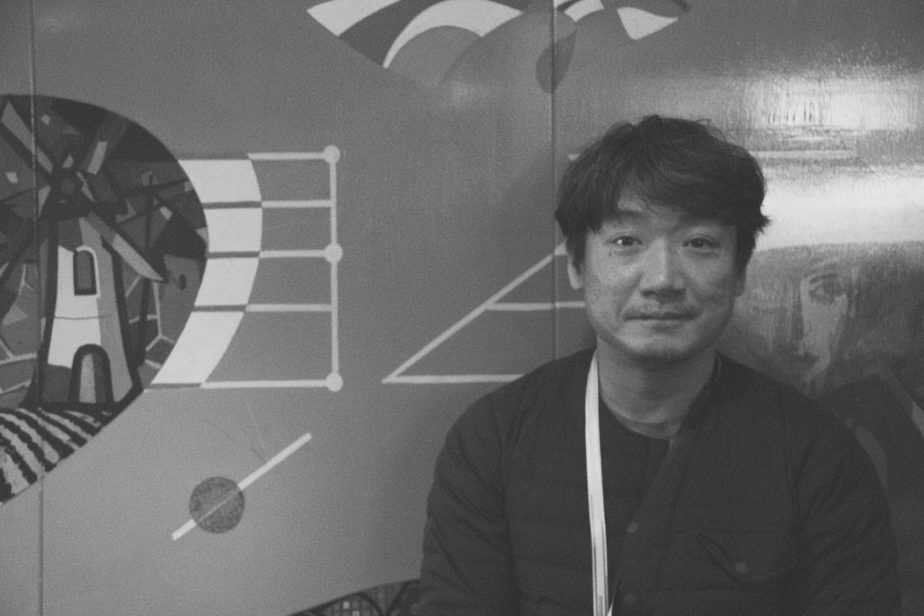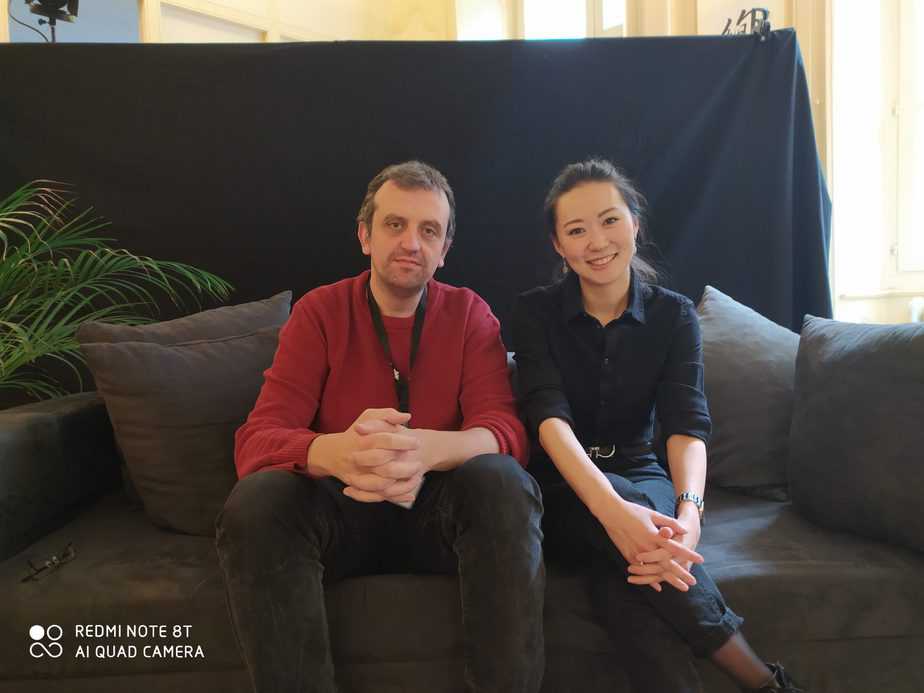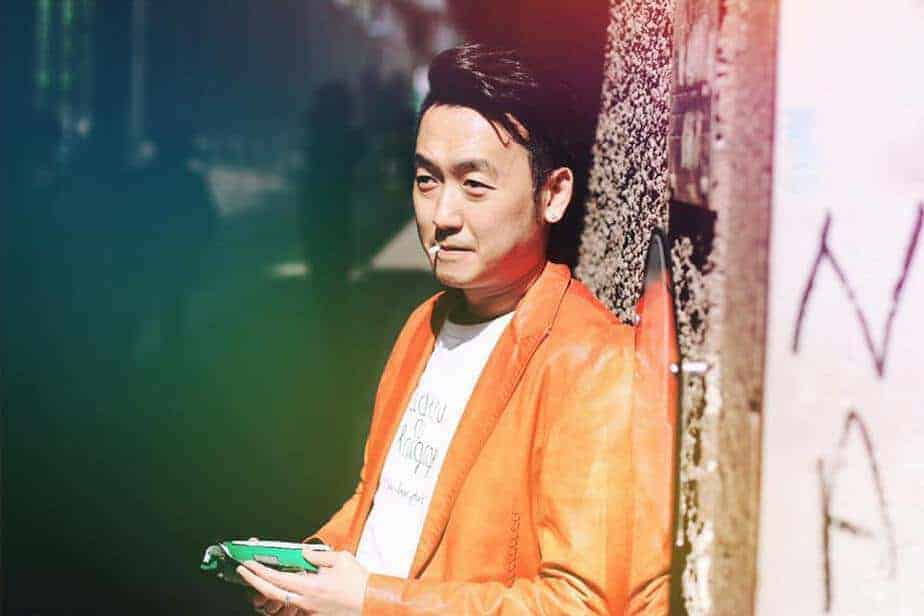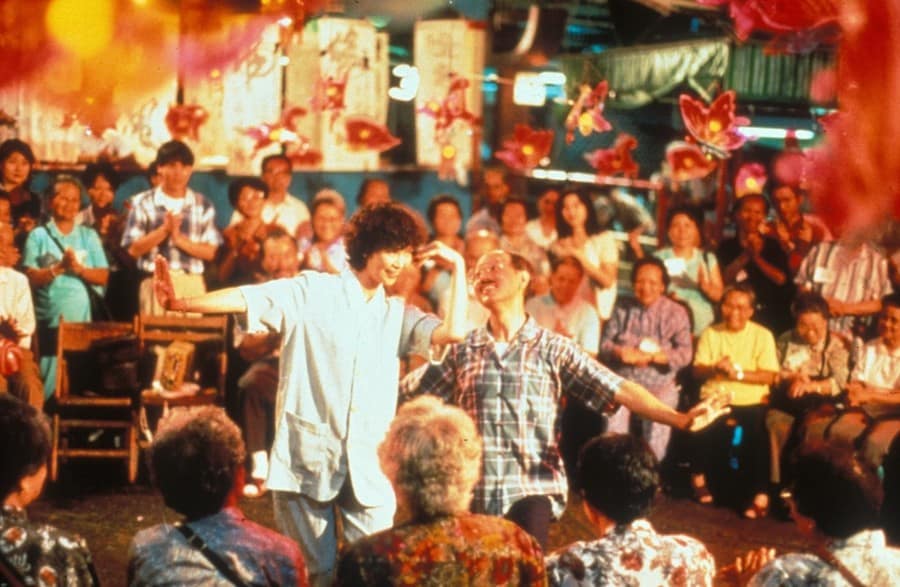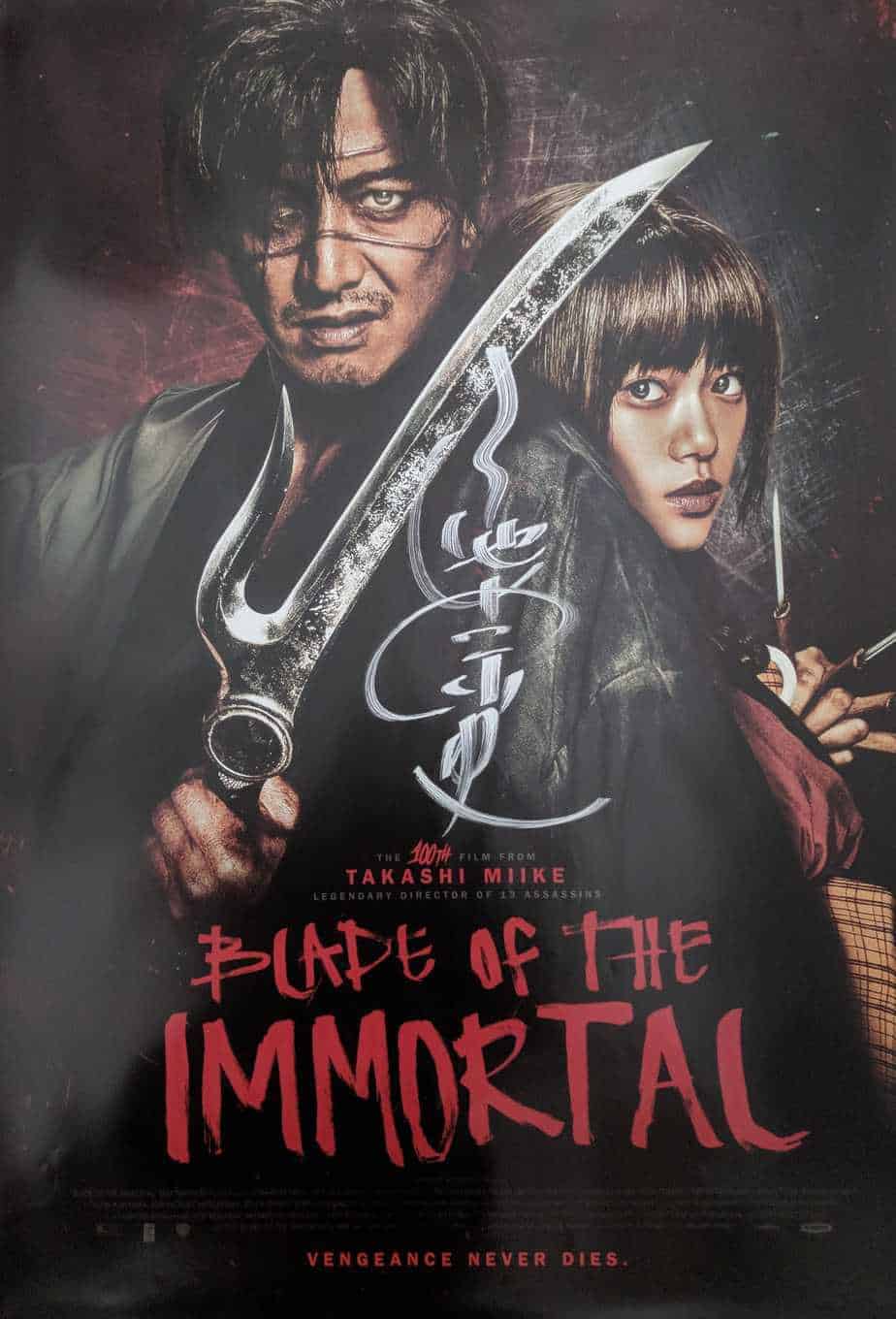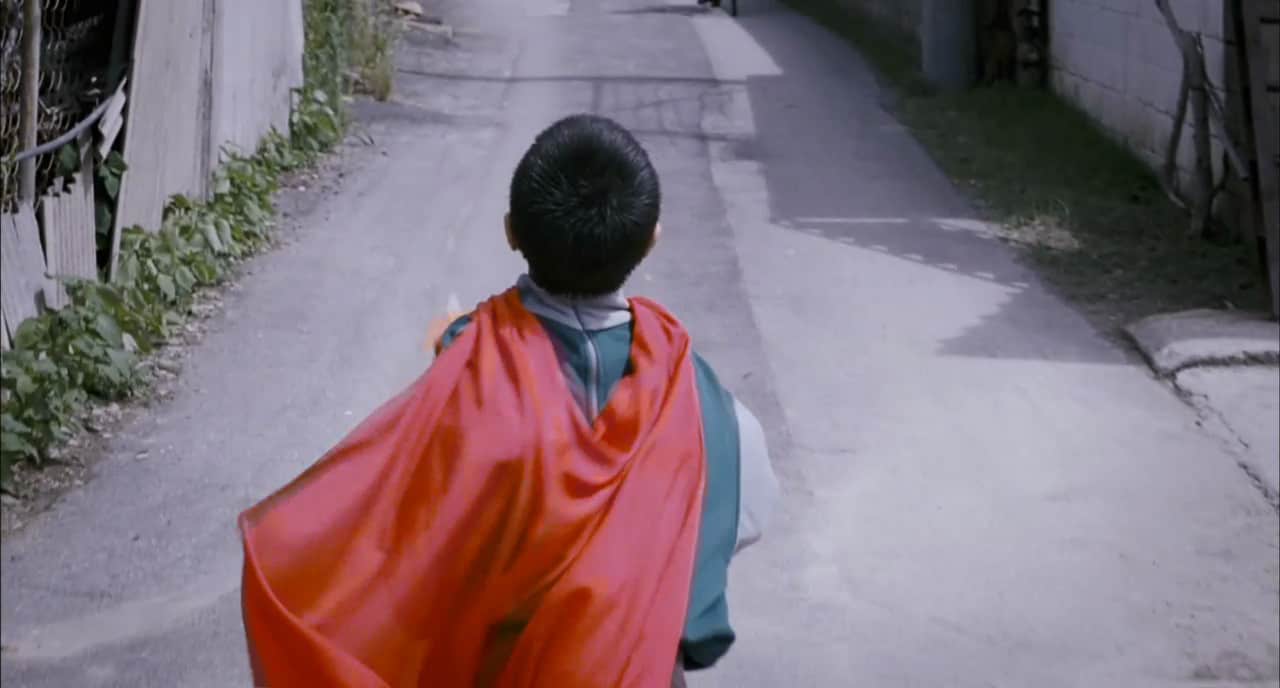Interview held on the occasion of International Film Festival Rotterdam 2020 and translated from Korean with the help of Kim Tae-hee.
Independent South Korean filmmaker, Park Jung-bum, comes back to IFFR with another socially-driven story about the inequality of Korean society, “Not in This World”. With a deeply humanistic approach and tender touch, he tackles the problem of homeless children and prostitution among minors. It is a story about young runaway rapper-wanna-be Ji-su (Moon Ye-ji) and a fool desperately trying to save the world, Jeong-cheol (played by Park Jung-bum himself). Some hope lurks outside from the dark and painful world; one that might not be enough for surviving, but surely one that can bring some change. Because after everything, these small things count the most.
On the occasion of “Not in This World” screening at the International Film Festival Rotterdam, we managed to talk about the film with the director, screenwriter and the protagonist of the story, Park Jung-bum.
In this and your previous films, you seem to get to the very bottom of the social problems in South Korea. You pick up problems no one dares to talk about. What's the process behind creating the story? Moreover, why do you choose to go through this long and demanding format – as all of your films are 2-3 hours long?
First of all, I try to find the motivation for the film. I'm trying to observe what exists in the real life and what seems to be around me. Then, when I find these, I'm asking myself and pursue this question in my head – why is this like that? In case of working on “Not in This World,” I've looked for answers. Why are there so many homeless children? Why have they escaped their homes, why do they have to fight? From that point, I realized that there is no government system that supports these kids, but the thing that sticks in my head is: can human beings can actually help each other? So the plot starts from here. It took 3 years in total [to finish]. There were about 15 versions of the script. And the one the film is made from is the most independent and free-spirited.
Have you decided from the start that it will be a story about a group of people, instead of having one leading protagonist?
Yes, it is not just a story about one character, but rather about people influencing each other, like a circle of influences. For instance, when someone is feeling something, it is thanks to another person. But the core of the story is Jeong-cheol. I thought that he can make it possible, that people would fall in love with each other. He doesn't give up, but ironically, he is totally alone. He is never loved back and he lives with his imagination of his father, that comes back in his head every now and then. What I try to ask about is the notion of helping each other – is it really there, somewhere? Does it really exist? Well, maybe it doesn't, maybe it does, but finding this answer is the motivation for the film. One of the reasons for the narrative about a group is that I like independent thinking and being as much free as possible. I don't like traditional system of creating. When I write, when I prepare the film, the characters have different difficulties and pains, but they influence each other because of having different backgrounds. Ji-su wants to sing and be a rap singer. At the same time, all she wants is to talk to someone and bring happiness to the entire world, it seems simple, but she keeps on failing to achieve that. And her boyfriend, he can't become a taxi driver, so he works as a delivery man. Jeong-cheol also wants something, that is burying his father, having him a decent burial, but he also fails. They all have their own pain and all they see is pain. The story is slowly changing and going. And that is the trajectory of the film – through the points of understanding one's pain, each by each.
I mentioned that you go down to the bottom of the society. But it does also exist in the metaphor of the film. At some point, everybody starts going down the mountain.
When one of the characters starts running around naked and furious, he ends up being trapped, but thanks to that, Ji-su, his girlfriend, realizes that through hatred – stealing or violence – they can't have love. It is also the moment, when at the end of the film, we hear the baby crying. Jeong-cheol realizes, “I was a baby once too. I was born like that, pure and innocent. But what the hell is going on now? Why am I bleeding? Why did all of this have to happen? How did we become like this? I am a human being so what is going on today, why am I trying to kill someone? Who brought me here? Why am I still alive?”
But before realizing that, at some point, everybody starts going down, trying to help the wounded one. They climb down the mountain, whilst going down into their inner fears and feelings. They expose themselves, because they even take their clothes off to help with the wounds. The positive energy slowly starts changing them, as they climb down. Finally, they reach the house, where the peace and harmony exists. It feels like it's [like the title,] “Not in This World,” it does not belong to it. But, I felt that it has to, it has to exist somewhere. I really wanted to, so I had to have an ending like this.

Why are you the protagonist in all your films? Not only that – these characters are rather poor men going through a hell of a misery in their life. What is the reason for that?
When I make a film, I'm interested in people who're going down and go as badly as possible. These are very poor people I'm talking about, for instance, the lower working class or people who escaped from North Korea. They become the protagonists of my films and I want to understand them more, that's why I become these characters in my films. On the other hand, “Not in This World” started with homeless children, another representation of poverty.
Is this a problem in South Korea – these homeless kids?
It is a problem in South Korea. But not only there; I think this is quite universal.
Have you met any real cases?
Yes, I have. I've lived with homeless children for some time, and I felt like a coward myself when we interviewed them. But I cared about them, tried to understand them what is the reason for doing this, but it met with the problem of communication as well. I felt like it was fake. Me, making a film, trying to make an art or money from their stories. I couldn't really take care for them, since there was and there is still no system that would support them. So I had a feeling, that the film is fake.

A fake film?
I thought to myself it is bad to film them, and painful as well. I can't help them. To make a plot, I use them, I take advantage of them, so I think my movie is fake, as if I'm using them for a process. It was sad and certainly painful to some degree. Some of these kids became close to me, we started to communicate, to talk with each other. Someone told them, they can be in the film and appear in it. So it started with that.
There is an image of youngsters being attracted to the American culture, money and violence. What made you bring all of these together in your film?
There is a lot of negative thinking in a film about capitalism. The characters of “Not in This World” they can't escape from capitalism. There is a negative perception of it, because there's a hierarchy in which they have to fight each other, and the love seems to be gone. To me, the USA is a symbol of capitalism. I really don't like America. Those two people who studied abroad, they're just for a few days in Korea for holiday during the university vacation and that's how the holidays look for them: it's all about buying and possessing, and that's why they play this games, they call it ‘games from LA'. It is so bad, but there are so many cases like that. Many people ask why I don't like USA, and in my first film characters want to go the USA, but maybe, it's not about the dislike of the USA, but rather making a statement about the symbolism of capitalism.
Apart from addressing to the capitalism, your film seems to grasp the essence of Christian values.
Yes, indeed. When Ji-su escaped her home, she slept in the church. That is right after when she picked up the brick and hit Jeong-cheol. Ironically, it all happened at the parking lot behind the church. It is the ground of the God – he's watching it all. After the incident, she starts to change, but she isn't praying, not yet. And when one of the characters is hurt, he lies down on the ground like Jesus on the cross. There is also a figure of betrayer – Judas. Experiencing bad things is a formative process for Ji-su. When she sees her friend being hurt, it is the time for her to start praying. There was no sign of believing in God before, no praying inside the house of God. She lost everything and only after that she's become able to pray. Christianity or Buddhism, it can be essential to someone's life.

Would you say it is essential about South Korean or universal?
To me it's universal, because the question to answer is: why don't we have any interest in other people's pain? We always watch bad news and read articles about poor and starving people, homeless children, murderers; we don't stop to think why it was done. Instead, people just thing “oh, it's another bad thing happening; they're just bad people, I don't care”. Nobody cares about the core of the problem, the sense of what's going on. They don't do nothing, they don't ask any questions. People are not interested in other people's difficulties and for that reason I try to figure out what is the reason behind it. Generally, people do not know about the essence of the news, but they seem to know all about the cases. They're able to simply to move on into a normal life, without having a thought about it and stopping. They don't even try.
The one that seems to care a lot is the character you play – Jeong-cheol. He is like a figure of a holy fool, like Forrest Gump, or Lazarro Felice or even those appearing in the films of Tarkovsky. What made you create this particular character?
This character is a pure human being. But in this world pure means being weak or very fragile, so he had to escape to the mountains. He ran out, but he still wants to take care of the girl. He's hard to find in the real world, he is a figure indeed, a symbol, once he starts doing some good deeds, the world changes; the two guys who are rich, they start helping other kids, because the fool exists and he links them. It's important to me, that he is in this world and brings them together, make a bound with them, it's a very important notion to me. It is the only solution for the capitalistic world, to help each other, to make bonds, to hear, listen or feel others, whether they're rich or poor, it's just about a feeling. When they look at the other people pain, then they can feel it as well. I want to show the pain that exist, real and different, because everyone has various reasons for feeling it. When they carry the man down the mountain, the baby starts crying and they all hear it.
What is the meaning behind that scene? Why did you decide to juxtapose sorrow that is present during the first half of the film, with some sort of an illusion of happiness and pure emotions that is linked with the baby crying?
All of the people in the film can hear it, including the audience. It means we were all babies, we used to be like this – innocent. That scene is meaningful and crucial for the film, because it's about innocence of all the people – hearing the baby crying. We were pure, we were babies. That moment, bike man opens his eyes because he hears the baby crying – that's the most important part of the film. He open his eyes and the world becomes recovered, in a way balanced. There were some tragedies: violence, beating, kicking and I wanted to show his trip, what he became, what he went through. He starts to think: is it real? All the things were just like a dream of yesterday night, and from there, it seems that going back to something what once was a normal life, it is actually possible. Just like nothing had happened. The very next day, they would go to the emergency room in a hospital, but after that, they would go to their normal and ordinary life again. But because of the memories of that night, they will be slightly changed. I want the audience to know about that, about that slight difference.

One thing is very important for the reasons of people changing in the film and that thing is the space. The Jeong-cheol's house is very peculiar. Could you explain the process of creating this space with all these toys, windows and doors?
The house, we called it a spaceship. It has so many windows and doors, indeed, that's why it was called a spaceship. I thought, that Jeong-cheol, the character that I play, he would never communicate with someone ever again, only with the ghost of his father. And it was only during the time of difficulties and pain, therefore, one of the biggest problems that I try to depict in the film, is the lack of mutual communication. Ironically, from somebody's pain you can find out more about the others. When they, or people in general get the other people's flaws and pain, they can finally know how to love.
And what about the house of the family? Watching the family in a few of the scenes seems like watching a film about harmony: family having a peaceful time. Could you explain this particular scene?
Most of the scenes in the film are almost abnormal, not entirely belonging to the real world. But this scenes from the house stands for happiness, small, normal things. Little details that bring us happiness.
They watch it from outside through a window that looks like a screen, like watching a film.
Yes, it's like watching a TV drama. When Jeong-cheol peaks into other people's lives, he is able to see what seems to be a normal life. The thing is, that normal life has always some doze of happiness. It's actually impossible to find love only by peaking, because it's hidden. But when he continued on doing that, he was able to finally capture this picture, the picture of love and happiness. The pregnant women exists, she is about to give a new life, and his father is already dead, and that's the cycle of human life. One dies, but the other is just about to be born.
And the father – what is the meaning of this character? Why have you decided to put a character that does not belong to the real world?
The idea of the father in my film is the projection of Jeong-cheol himself. His father represents all that is bright and good about Jeong-cheol. The father stands for the bright side of his mind. That's why it is a constant battle between the bright and the dark side of him. That's why he also realizes that at some point, he will have to sacrifice himself for the bigger purpose. This is when he meets him and talk about it. But, unfortunately, he still has to bury him. It would be more simple for him, to get rid of his bright side, to decide be a common, selfish person. He also realizes the fact, that burying would mean losing the father in the end. Once buried, he would disappear from his mind, from his bright sight. He's constantly in the process of digging, but in the end, he is unable to finish it. He misses him, thinks about him, that's why he comes back as a ghost. He tries to throw away his own conscience, that is where his bright side exists. This process is about dignity, as well as being a decent human being, and that is something that the figure of a father stands for.

What about Ji-su and her yearning for dignity? There is a certain amount of rap music presence in the film. Why the rap music and why Ji-su wants to be a rapper?
Hip-hop is a huge trend in South Korea right now. She can't stand being everyday worker, that's why she spends her days in the square, so the people can notice her. She wants to be visible, but more than becoming a singer, she wants to be appreciated. She doesn't like to be in the factory all on her own all the time, and alone, like her parents force her to do. It's similar with emotions of my character, Jeong-cheol. That's why they can become friends. He is stuck in the spaceship, his house in the mountain, and Ji-su is stuck in her father's workshop. They can understand each other, because they come from the same overwhelming environment. When he shows her the interior of the spaceship, she starts to sympathize with him.
These connections between characters seem almost biblical. What is the story of your characters' names? What do they mean?
In all of my films the character's names mean something. The names of protagonists always stand for purity and innocence. Jeong in Jeong-cheol is justice, and cheol means pure. Ji-su in Korean sounds like Jesus. Won in Won-ho means hope, ho is guidance. And that's why he yearns for people, as he hopes someone will care about him, need him and protect him. The name of a father is Chang-su, chang means wide and big, su is for water, he is the mother-nature, wide and huge water that is everywhere around us.
And finally, perhaps most importantly – what is that you looking for in your life, in this world?
The most important thing for me is the motivation for life – just like with the motivation for the film. And that motivation for life can be found in love. The story of love is to look into other people's pain and understanding others through their difficulties and their pain. Someone has to be cool about their own bad side. We need to know our own pain. I think that this motivation comes from humanity, from being aware of ourselves. We can be alive, yes, but it's happiness that is a proof for being truly alive. Love is proof of life.


